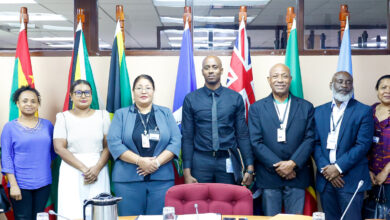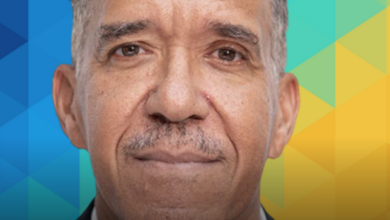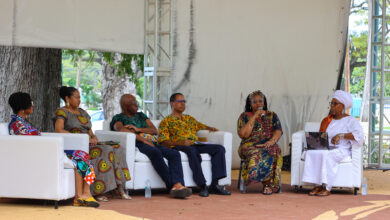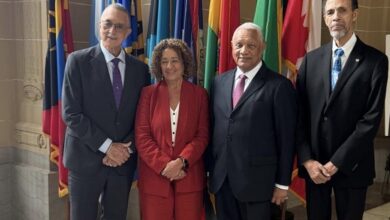(CARICOM Secretariat, Turkeyen, Greater Georgetown, Guyana) The Caribbean Community (CARICOM) Commission on Youth Development (CCYD) is meeting at the Hotel Montana in Port au Prince, Haiti, for three days, to discuss preliminary research findings and develop a plan of action to complete the Commission’s Report. The recommendations of which will be discussed by the special Meeting of the Council for Human and Social Development (COHSOD) in April 2009, prior to its submission to the CARICOM Conference of Heads of Government in July 2009.
At the opening ceremony this morning, (8 December 2008) Haiti’s Minister of Youth, Sport and Civic Action, the Hon. Evans Lescouflair, in his feature address, read by M. Jean Claude Michaud, Chef de Cabinet of that Ministry committed to “taking all possible measures” in giving greater support to youth development in his country, and challenged the Caribbean Community to channel more resources into the CARICOM Youth Ambassador Programme.
The Minister announced that his Ministry was designing and proposing action programmes that would redound to greater opportunities for the social, economic, political, cultural and civic integration of Haitian youth.
He further pointed to the significance of the CCYD Meeting in Haiti and the wide cross section of stakeholders, noting that it “augurs well for the quality of the cooperation to be effected between our country and the other CARICOM countries and the sustained efforts that must be deployed in order to build an effective and productive partnership that provides opportunities for integration for the benefit of our country’s youth.”
Co-Chair of the CCYD, Professor Barry Chevannes in his remarks said, the Commission had battled many obstacles, which mirrored the challenges – distance, language and resource constraints – faced by the Region. “That we have been able meet them as they come has been due to the indomitable support of the CARICOM Secretariat and the willing input of all of you who have made our objectives your own,” he remarked.
Asserting that the Commission’s importance lay in its unique combination of the creative talent and energy of the youth members of the Commission and the wisdom and insights of the more experienced technocrats, he expressed confidence that the Commission, over the three days, would deliver on its objectives and subsequently on its mandate by the Conference of Heads of Government to provide a comprehensive analysis of the challenges and opportunities for youth in the CSME, and to make recommendations on how to improve their well-being and empowerment.
“The more we deliberate, the more certain we are that there can be no development without youth development, he opined.”
In her remarks, Dr Hilary Brown Programme Manager for Culture, Youth and Community Development at the CARICOM Secretariat recognized the pivotal role played by youth in regional development and averred that the Community needed to go beyond mere acknowledgement of this and take decisive action not only to address the many challenges faced by Caribbean youth but also to build upon the strengths, vitality, energy , skills and potential of the many youth who were already making valuable contributions to the Caribbean Community.
She perceived the Meeting in Haiti as an opportunity to advance the youth agenda and commended the Commission for its endeavours to fulfill its mandate, given by the Conference.
Her sentiments were reiterated by Ambassador Earl Stephen Huntley, Director of the CARICOM Representation Office in Haiti, who noted that the Meeting was a symbol of Haiti’s growing involvement and active participation in the Community.
CARICOM Youth Ambassador Leticia Cadet who gave the Meeting a warm Haitian welcome noted that the Commission’s presence in Haiti was a symbol of the progress of implementation of the youth agenda.
The welcome was further underscored with a cultural presentation from Haiti’s Tchaka Dance Group, which gave the Meeting a scintillating slice of Haiti’s music and dance traditions, bringing the opening ceremony of the third meeting of the CARICOM Commission on Youth Development to its close.
During the three-day deliberations, presenters will highlight regional issues and trends distilled from a review of the literature on Caribbean adolescents and youth and from preliminary reports on youth perspectives on adolescent and youth vision, aspirations, concerns, identity and CSME perspectives; CARICOM and the CSME; risk, vulnerability, resilience and protection; and the relevance, functionality and responsiveness of youth governance structures. The meeting will validate research conclusions and recommendations and devise a plan of action for the way forward.





